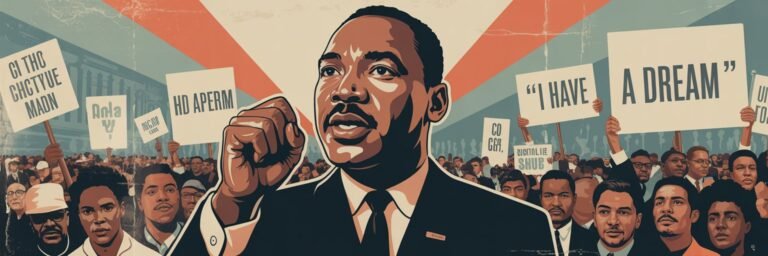INTRODUCTION
Everyday life during political assassinations is a broad and complex topic. Throughout history, ordinary people have lived through times of extraordinary, and often violent, political change. Unpredictable shifts in power often lead to profound and immediate changes in daily life. Individuals can be directly impacted in terms of their safety, social status, and access to resources. Communities as a whole can also find themselves navigating periods of extreme tension, fear, suspicion, and uncertainty. By examining the phenomenon of political assassinations, we can gain a unique insight into the societal context of these events, and the many ways in which they influenced the lives of ordinary people.
HISTORICAL BACKGROUND
Political assassinations have been part of the human story since civilization began, representing a violent clash of power, ideologies, and interests. One of the earliest recorded political assassinations, for instance, is the murder of Egypt’s Pharaoh Ramesses III around 1155 BCE, plotted by his own wives and courtiers seeking to bypass the established line of succession. Similarly, in 44 BCE, Julius Caesar was famously stabbed to death by a group of Roman senators, his demise becoming synonymous with the fate of those who amass unchecked power.
A prominent feature to emerge from these historical examples is that the circumstances surrounding political assassinations may take many forms. They could be borne out of a personal vendetta, as in the case of King James I of Scotland, slain in 1437 by a group led by his own uncle. In other instances, they result from broader social and political factors, as was the case when Archduke Franz Ferdinand was assassinated in 1914, sparking World War I.
THEORIES AND INTERPRETATIONS
Academic theories and interpretations around the impact of political assassinations on everyday life are varied. Broadly, some historians view such events as ‘watershed moments,’ catalysts of dramatic social shifts that reverberate down to the individual level. For example, the assassination of Abraham Lincoln in 1865 profoundly changed the course of Reconstruction in the United States, impacting Southern society for generations.
Yet, other scholars argue that political assassinations often serve to reinforce preexisting social structures and dynamics more than to alter them. For instance, despite the shocking assassination of Louis Mountbatten in 1979 by the Irish Republican Army, the event did little to halt the broader Irish peace process.
MYSTERIES AND CONTROVERSIES
Political assassinations invariably breed mysteries and controversies due to their covert nature and the high stakes involved. The accounts of what happened during the assassination, who was involved, and why vary widely. For example, the assassination of Martin Luther King Jr. in 1968 is wrapped in ambiguities. While James Earl Ray was convicted for the crime, many, including King’s family, believe that he did not act alone, suggesting the involvement of the FBI and other authorities. In other cases, theories and rumors persist long after the event. The assassination of President John F. Kennedy in 1963, for example, has inspired countless conspiracy theories, with fingers pointed at everyone from the Mafia to the CIA.
SYMBOLISM AND CULTURAL SIGNIFICANCE
Political assassinations have immense symbolic and cultural significance. They underscore societal tensions, broadcasts ideological disputes, and punctuate historical epochs. The assassination of Mahatma Gandhi in 1948, for instance, symbolized the bitter religious divisions in post-partition India. Meanwhile, the assassination of Olof Palme, the Swedish Prime Minister in 1986, shattered the myth of ‘safe’ Western Europe, causing Swedes to reflect deeply on their society’s underlying tensions.
MODERN INVESTIGATIONS
In the age of advanced technology and mass media, modern investigations into political assassinations often take on a global, frenzied quality. Unlike the past, where the facts might have been swiftly buried or dismissed, public and official scrutiny is typically relentless in the modern era. The assassination of Jamal Khashoggi in 2018 at the Saudi Consulate in Turkey, for example, sparked international outrage and deep investigation into the Saudi government’s possible involvement.
LEGACY AND CONCLUSION
The legacy of political assassinations is complex and enduring. They can act as symbols of resistance, cautionary tales of unchecked power, or triggers for sweeping social upheaval. From the murder of the Gracchi brothers in Rome, which stoked the fires of populist revolt, to the assassination of Archduke Franz Ferdinand, which unleashed an era of global warfare, political assassinations have revealed stark realities about their respective societies and shaken the daily lives of their inhabitants.
In conclusion, understanding the impact of political assassinations on everyday life means excavating beneath the headlines and official narratives. It means comprehending the intricate interplay of social, political, and individual factors that shape our responses to these acts of violence. Above all, it involves acknowledging the sobering truth that such events are not isolated or historical anomalies but part of a broader, enduring human narrative. It is through such understanding that we can perhaps learn to anticipate, resolve, or at least buffer the societal tensions that so often culminate in such tragic events.






